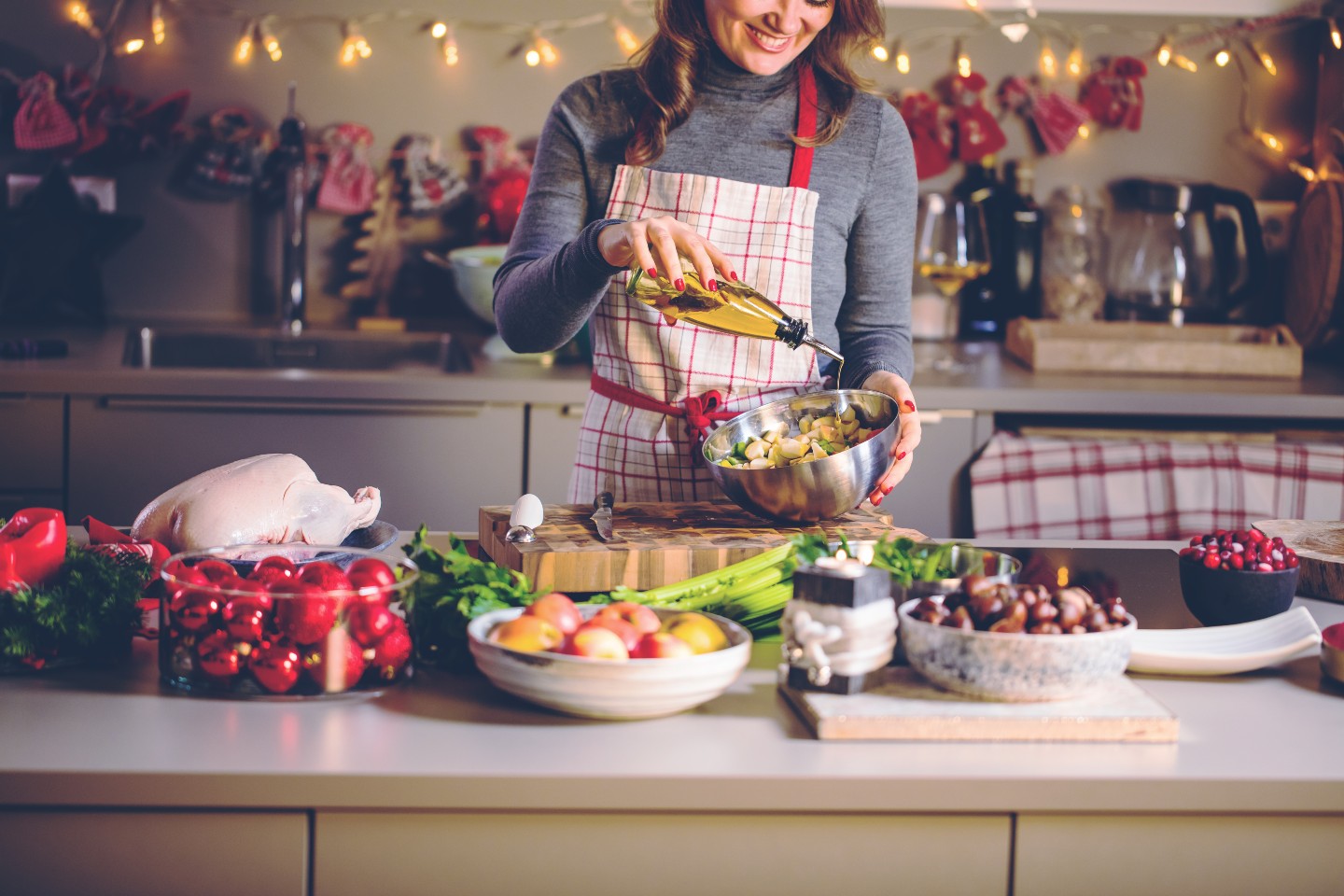The festive season is a time to kick back, indulge and spend time with loved ones. However, it can also be busy, stressful and challenging to stay healthy while enjoying yourself. To help you have a cracker of a Christmas without overdoing it, we’ve pulled together a few tips:
Kick off your day with a healthy breakfast
Over the holidays, it’s tempting to skip breakfast but starting your day with a healthy option such as eggs or porridge stabilises blood sugar levels1, to help control your appetite later on in the day. Why not add a spoonful of probiotic yogurt to provide an extra boost to your immune system and digestive health2, to help combat any after-effects of festive overindulgence.
Eat regular meals
Eating less during the day ahead of a large dinner can seem logical, but in fact it’s important not to get too hungry if you want to avoid overeating later in the day. Aim to eat regular meals over the festive season, but choose lighter options such as a chicken or tuna salad, or wholemeal pitta and hummus. Fill your plate with fruit, vegetables, wholegrains and high fibre foods3 to fill you up and counteract the less healthy options which often surround us at Christmas events!
Keep a track of what you drink
For those who drink alcohol at Christmas parties, it can be hard to keep track of how much we’re having. Health experts recommend no more than 14 units of alcohol a week – around six 175ml glasses of wine or pints of beer – spread across 3 days or more4. However, it doesn’t take many nights out for the units to soon mount up, so try and monitor what you’re drinking and alternate alcohol with soft drinks or water. This will help protect your health and prevent the dreaded festive hangover. There are also loads of great festive alternatives to alcohol so don’t feel obliged or pressured to drink if you don’t want to.
Stay hydrated
Whether or not you choose to drink alcohol, it’s important to stay hydrated over the festive season to help counter the effects of high salt and sugar foods which inevitably form a staple part of the Christmas diet. On the day of an event, make a conscious effort to drink plenty of water, herbal teas or diluted juice. This will help prevent headaches and support heart health, circulation and digestion5– vital all the year round.
Keep activity levels up
It can be tempting to spend the Christmas holidays on the sofa, eating and watching festive films. While resting up should certainly form part of your break, make sure you balance this with staying active. Encourage the whole family to get outside for a walk or a bike ride and make the most of the break by heading to the gym or for a run. This will boost your physical health and also help with sleep quality and mental health6.
Pause before you eat
Christmas is likely not a time to calorie count. However, with chocolates, mince pies and salty snacks wherever you look, it’s easy to eat without thinking and consume far more than you realise. Research suggests we consume around 5,373 calories on Christmas Day alone7 – more than double the recommended daily amount8. This not only contributes to weight gain but also to indigestion and heartburn.
Instead of a super-size Christmas dinner, eat a normal-sized meal and load up your plate with veg. And before you pop something in your mouth, take a minute to think about whether you really want it or are just eating it because it’s there. That way, you’ll reduce the risk of overeating and make sure you really enjoy your festive treats.
Don’t stress and overspend
Finally, while Christmas is the season to be jolly, it can also be stressful9, with overspending, cooking, endless jobs to do and family tensions. Get family members to help and support you, try to keep a sense of proportion and avoid putting pressure on yourself for everything to be perfect. It’s not the end of the world if ‘Elf on the Shelf’ hasn’t moved, the sprouts are soggy or the house isn’t perfectly clean. Instead of spending more than you can afford, set a budget and stick to it, and if you have time, consider making gifts such as cost effective foodie treats or simple decorations. And if it all feels too much, take a break and get out for a walk to clear your head.
Most importantly, enjoy yourself, rest when you can, and have a happy, healthy Christmas!
2 https://www.organicfacts.net/probiotic-yogurt.html
5 https://www.bbcgoodfood.com/howto/guide/how-much-water-should-i-drink-day
6 https://www.nhs.uk/live-well/exercise/exercise-health-benefits/
9 https://www.mind.org.uk/information-support/your-stories/10-ways-to-reduce-christmas-stress/
